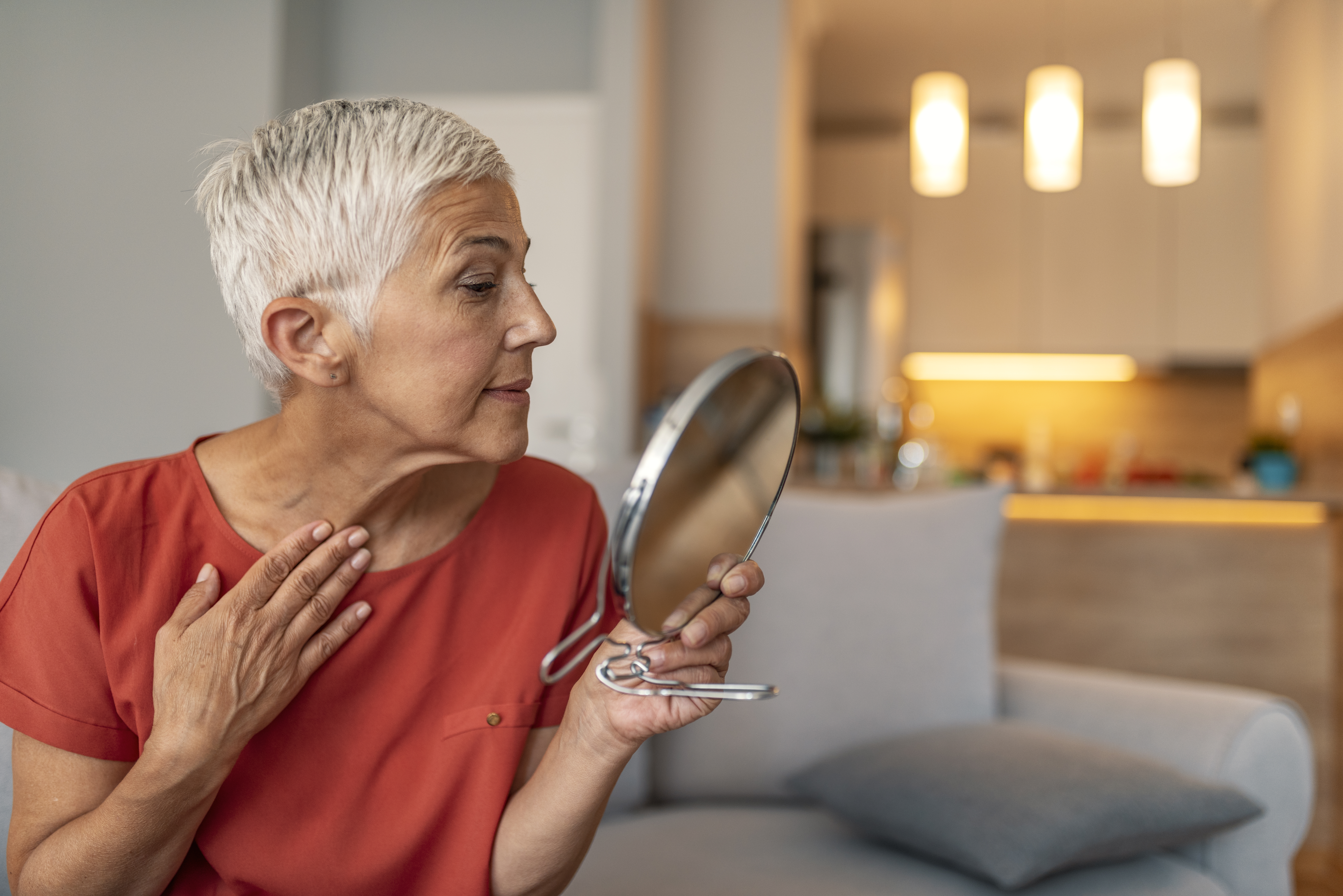There's nothing quite like the feel of the warm sun on your face, especially after many long winter months. While comforting, the sun's rays can be damaging to your skin, even more so as we age. The American Academy of Dermatology Association says that a tan means your skin is injured, ages your skin and puts you at risk for skin cancer, especially melanoma.[1] As summer approaches and your time outside becomes more frequent, plan for ways to protect your skin from sun exposure.
Sunlight and Your Well-Being
There are health benefits from moderate sunlight exposure. Getting sunlight on your skin can help produce important nutrients like vitamin D, which helps keep your bones and immune system healthy and strong. Sunlight also boosts serotonin in your brain, which can make you feel better and brighten your day. Moreover, your sleep pattern relies on the day’s light to tell your body’s clock when to get some shut eye.[2]
The rays of the sun impact our bodies in so many ways, but it’s important to be mindful of how the sun can affect your skin from too much exposure. Repeated sun exposure can speed up signs of aging. Wrinkles and fine lines gradually show up, age spots that are flat and brown appear on the skin, dry skin patches develop and even sagging skin can happen.[3,4] You can’t turn back the clock with your skin, but all is not lost! Using protectant sunscreens, moisturizers and other skincare products on a regular basis can help nourish your skin and safeguard it from premature aging.
Sun and Skin Cancer
Although sunburns fade, the damage from a sunburn stays within your skin and may put you at risk of skin cancer. According to The Centers for Disease Control and Prevention (CDC), more than 5 million people are treated for skin cancer, costing $8.1 billon annually. The majority of those affected are ages 65 and older.[5] Skin cancer can come as a surprise, but it can be physically seen on your skin, and it is treatable if caught early. Be sure to check for spots that aren’t like others on your body and contact your doctor if you have any questions or concerns. A good guide is to use the ABCDE of Melanoma:[6]
Asymmetry: One half of the mole does not match the other half.
Border irregularity around the edges.
Color varies from one area to another.
Diameter is greater than the size of a pencil eraser.
Evolving mole or skin lesion that looks different from the rest in size, shape, or color.
Keeping Your Skin in the Game
There are proactive ways to keep your skin protected and healthy moving forward. Of course, maintaining how your skin looks is also important so be sure to speak with your doctor or a dermatologist about what works best for you. Preventative measures to protect your skin may include the following:
Seek shade. Avoid being in sunlight during the hottest times of the day, between the hours of 10 a.m. to 3 p.m.
Know your surroundings. Areas like sand, water and snow can reflect sunlight. Even on overcast days, there still is a risk factor of sunburns.
Vitamin D supplements. Talk to your doctor about adding vitamin D to your diet if you have been given specific instructions to avoid the sun.
Use sunscreen. Generously apply sunscreen of at least 15 SPF or more. Remember to re-apply often and check the expiration date.
The season of sunshine and enjoying the outdoors can take a toll on your skin, especially those that are prone to sunburns. Taking extra UV safety precautions and proactively checking your skin for changes can help keep you protected and healthy as you get older. Remember when found early, skin cancer is highly treatable.
[1] American Academy of Dermatology Association. Skin Cancer Prevention. https://www.aad.org/public/diseases/skin-cancer/prevent/how
[2] Healthline (2018). What Are the Benefits of Sunlight? https://www.healthline.com/health/depression/benefits-sunlight#outlook
[3] Cleveland Clinic (2019). Sun Exposure & Skin Cancer. https://my.clevelandclinic.org/health/diseases/10985-sun-exposure-and-skin-cancer
[4] National Institute on Aging (2017). Skin Care and Aging. https://www.nia.nih.gov/health/skin-care-and-aging
[5] Division of Cancer Prevention and Control, Centers for Disease Control and Prevention (2021). Many Older Adults Don’t Protect Their Skin from the Sun. https://www.cdc.gov/cancer/dcpc/research/articles/older-adults-protect-skin-sun.htm
[6] American Academy of Dermatology Association. Skin Cancer: Everyone’s At Risk. https://www.aad.org/public/diseases/skin-cancer/find/at-risk
S7694_22-6944_enewsletter 2022_C Reviewed 06/10/22
Elixir Insurance is a Prescription Drug Plan with a Medicare contract. Enrollment in Elixir Insurance depends on contract renewal. For more information, please call our customer service number at 866-250-2005. TTY users call 711. We are available 24 hours a day, 7 days a week. ATTENTION: If you speak Spanish, language assistance services, free of charge, are available to you. Call 866-250-2005 (TTY: 711). ATENCIÓN: si habla Español, los servicios de asistencia lingüística, sin cargo, están disponibles para usted. Llamada 866-250-2005 (TTY: 711).
Elixir Insurance, 8921 Canyon Falls Blvd., Suite 100, Twinsburg, OH 44087, United States


